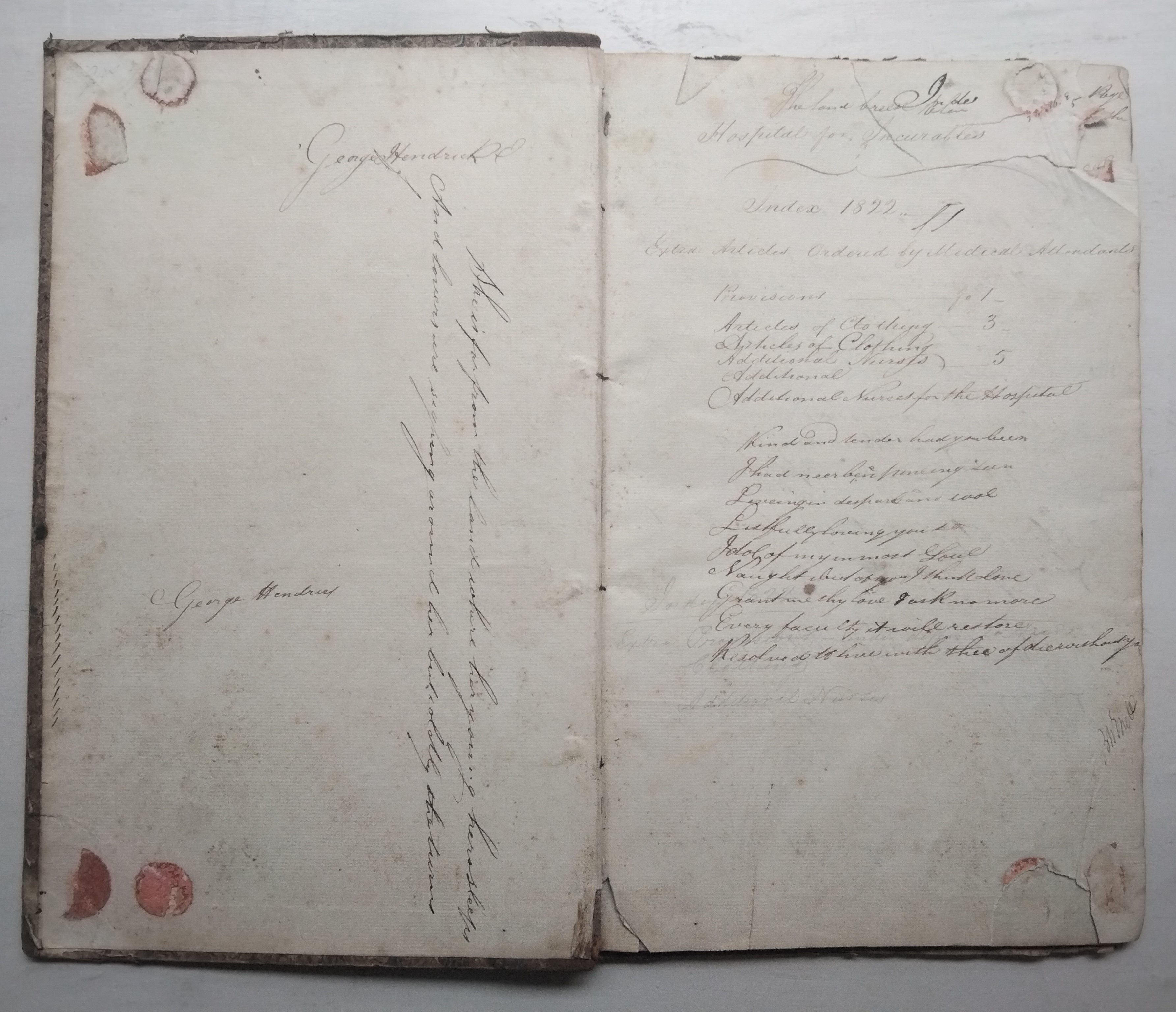Love in the archives
“How do you spell love?” - Piglet. “You don’t spell it, you feel it.” – Pooh.
Little did I expect an institutional record in the vast archival collection of the Royal Hospital Donnybrook to bring to mind this A.A. Milne quotation about love but while cataloguing this fascinating hospital collection, I was lucky enough to come across romantic verses in, of all places, an account book.

The archives in the Royal Hospital Donnybrook’s collection contain the official records created, received and accumulated by the hospital since its foundation in 1743. The types of records which have survived over the last 280 years typically relate to the administration, governance and financial management of the hospital. Annual reports, letters, account books and other archival records inform the history of the hospital, and the decisions and actions people took, but rarely, do archives of this nature tell us how people feel. A precious glimpse into the treasurers’ feelings took me by surprise when I discovered love poems written by George Hendrick inside an account book.
Hendrick was employed in the Royal Hospital Donnybrook as registrar, providore and accountant in 1821. A senior position, Hendrick was responsible for overseeing the hospital’s accounts which included monitoring the supply of hospital provisions such as clothing and patients’ diets. In one of these account books spanning a period from 1822 until 29 April 1825, Hendrick wrote,
“Kind and tender had you been
I had ne’er been [ ] seen
Living in despair and woe
Listfully loving you so
Idol of my [inmost] love
Nought but of you I think alone
Grant me thy love I ask no more
Every faculty it will restore
Resolved to live with thee or die without you”.
On the inside cover, he also wrote, “She is far from the land where her young hero sleeps And lovers are sighing around her but coldly she turns”.

Discovering such a gem in the archives, I couldn’t resist trying to find out a little more about George Hendrick’s romantic soul. In 1993, Dr Helen Burke, University College Dublin wrote a history of the hospital, ‘The Royal Hospital Donnybrook, A Heritage of Caring 1743 – 1993’ and includes a short account of Hendrick. It seems Hendrick inherited the position from his father who had voluntarily audited the hospital’s accounts for many years. Hendrick junior was appointed accountant in 1821 at a salary of £40 per annum. However, it seems his work disappointed the governors of the hospital. Burke writes, ‘by 1826 the governors were complaining that George Hendrick was neglecting his duties, not presenting proper statements of the accounts to the board, and owing money to the hospital. He was dismissed in 1826….’.
So, while Hendrick’s mind may not have been on his duties and it seems he paid a hefty price for matters of the heart, I am grateful for his beautiful poems. They bring the voice of a character in the hospital archives to life in a way that administrative records cannot. As an archivist, they also serve as a reminder to always look for the ‘colour’ in archives and take a holistic approach to their preservation.
The surviving archives in the institutional collection of the Royal Hospital Donnybrook essentially provide evidence of what people did and why. Discovering Hendrick’s account book and poems tell us not just what he did but how he felt and provide a treasured glimpse in to a past, if not tortured, soul!
Jane Moloney, Assistant Archivist